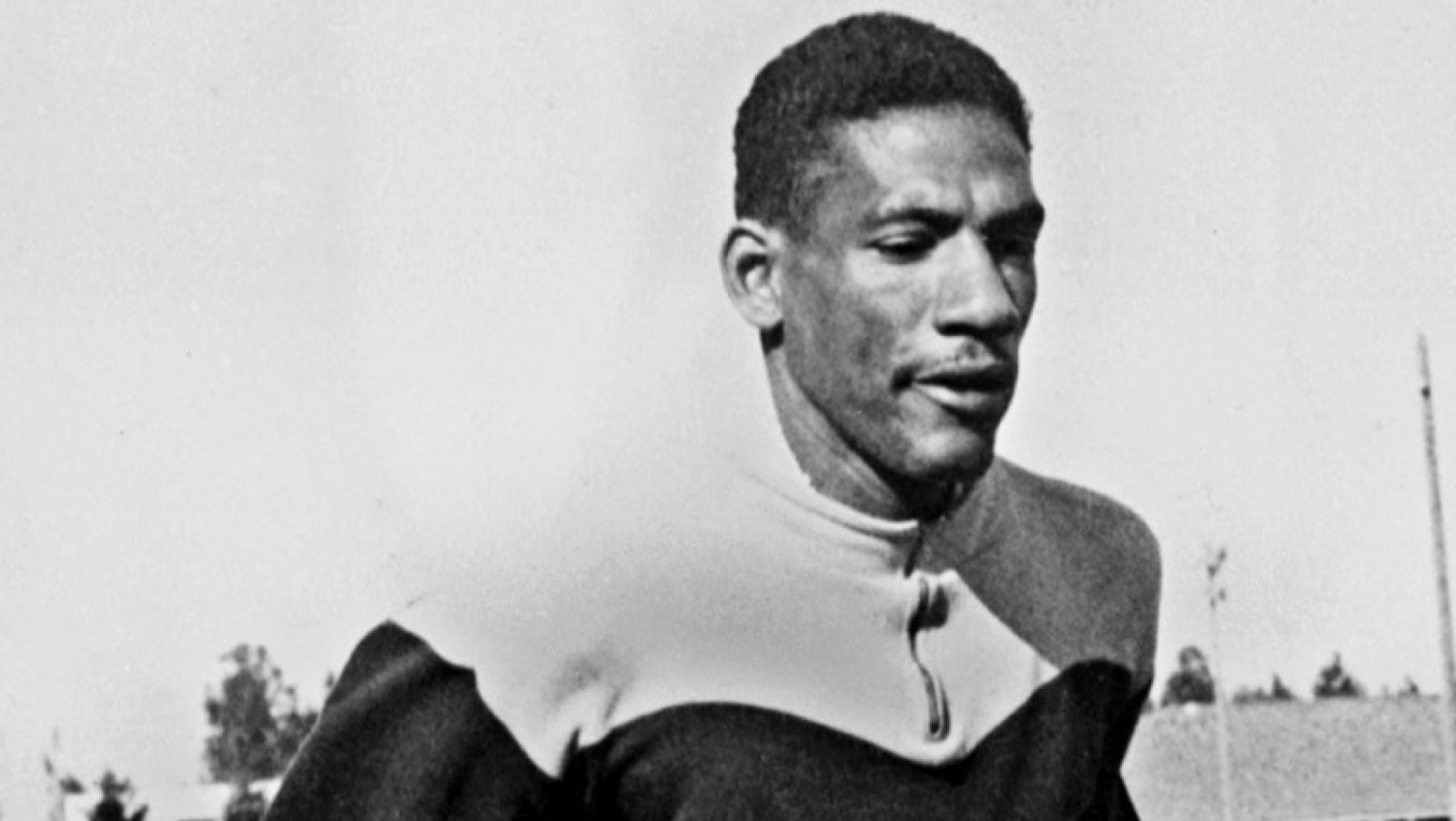
Tags: Athletics, Dr Arthur Wint, Jamaica, Jamaica Olympic Association, Olympics
The Jamaica Olympic Association (JOA) has paid a special tribute to the legendary track and field icon, Dr Arthur Wint on the anniversary of his birth, for his ‘historic and pioneering’ achievements as one of Jamaica’s ‘greatest athlete and administrator’.
JOA President Christopher Samuda and CEO Ryan Foster paid tribute to the late Jamaican great, who was born on May 25, 1920, in Plowden, Manchester. He won four medals at the Olympic Games.
At the 1948 Olympics in London, Wint, who was nicknamed ‘Gentle Giant, won Jamaica’s first-ever Olympic gold medal when he took the 400 metres in 46.2 seconds to defeat his also legendary and long-time Jamaica and Calabar High School team-mate, Herb McKenley.
The lanky runner also attended Excelsior.
Wint, 28 years old at the time and captain of the Jamaica team, also won the silver medal in the 800 metres at those Olympic Games, beaten only by American Mal Whitfield.
He missed out on a third medal when he suffered a pulled muscle while running the third leg in the 4x400 metres relay final.
Four years later, Wint would return to the Olympic Games, this time in Helsinki, Finland, where he won two medals – silver in the 800 metres when he was again beaten by Whitfield; and gold as a member of Jamaica’s record-setting (3:03.9 seconds) 4x400 metres team that also included McKenley, George Rhoden and Leslie Laing.
In a tribute titled ‘The Olympic spirit in Wint’, JOA President Samuda shared: “The length of his stride was not just in yards but in measureless value. The depth of his footprints was not just earthbound but commanding. The height of the man was not just imposing, but inspiring. The breadth of his integrity was not merely wide, but all-embracing.
“In Arthur Wint stood not only an Olympian but a gentleman whose character and scholarship went beyond his athletic achievements, which were indeed august. In Arthur Wint resides history and, at the same time, the future of his earthly run was historic, as it was pioneering,” added Samuda.
“Statistics will continue to record the times of his life with laser precision and historians will scribe, with homage, his athletic pedigree and pilgrimage. But it is the stature and honour of the man that we find his quintessential bequest,” said Samuda.
“On the occasion of the 100th anniversary of his birth, we reflect as an Olympic Movement, on his life spent not only in sport but generally with humanity and are inspired beyond the centenary. In Wint, the Olympic spirit ascends. In Wint, the Olympic spirit transcends generations,” Samuda noted of Wint, a physician by profession, who also served as Jamaica’s High Commissioner to London from 1974 to 1978.
He was awarded the Order of Jamaica by the Government in 1989.
Foster, meanwhile, highlighted Wint’s ‘storied and rich’ legacy.
“The Jamaica Olympic Association celebrates the life and historic achievements of our beloved son of the soil, Dr Arthur Wint. His achievements have been storied and have been a part of Jamaica’s rich history at the Olympic Games, especially in track and field. Dr Wint was one of the greatest and most respected athletes and administrators in the Olympic history of Jamaica,” he said.
“We acknowledge Dr Wint’s dedication and passion for the Jamaican Olympic journey. He has left an enduring legacy which we all can be proud of and one in which we all can seek to emulate.
“His life has had a far-reaching impact on the Jamaican and global landscape and his name will always resonate as Jamaica’s first Olympic gold medallist. We are so thankful for what he has accomplished and for what his dedication, loyalty and tenacity brought to our country, which will forever live on.”
Honoured eternally with a statue depicting his trademark running form at the National Stadium in Kingston, Wint also served in the Royal Air Force and at St. Bartholomew’s Hospital in England, while undergoing medical studies. He died at age 72 in October 1992.
LATEST STORIES
CANOC President Keith Joseph Believes IOC’s Future Hangs in the Balance After Coventry’s Election
- 2025-03-26 06:34:22
- Hits 291
Hansle Parchment Cherishes ‘Truly Special’ Reunion with Tokyo Hero Teiyana Stojkovic in Jamaica
- 2025-03-19 10:53:14
- Hits 291
Minister Grange to Offer Assistance to Para Athletes Dale and Dave Oddman Following Mother’s Passing
- 2025-02-20 06:24:25
- Hits 279
CANOC Seeks Stronger Ties with CARICOM to Position Sport as Key Pillar of Regional Development
- 2025-02-21 06:23:35
- Hits 239
Court of Arbitration for Sport Dismisses Nayoka Clunis’ Appeal Against World Athletics Decision
- 2025-03-19 17:30:25
- Hits 231
